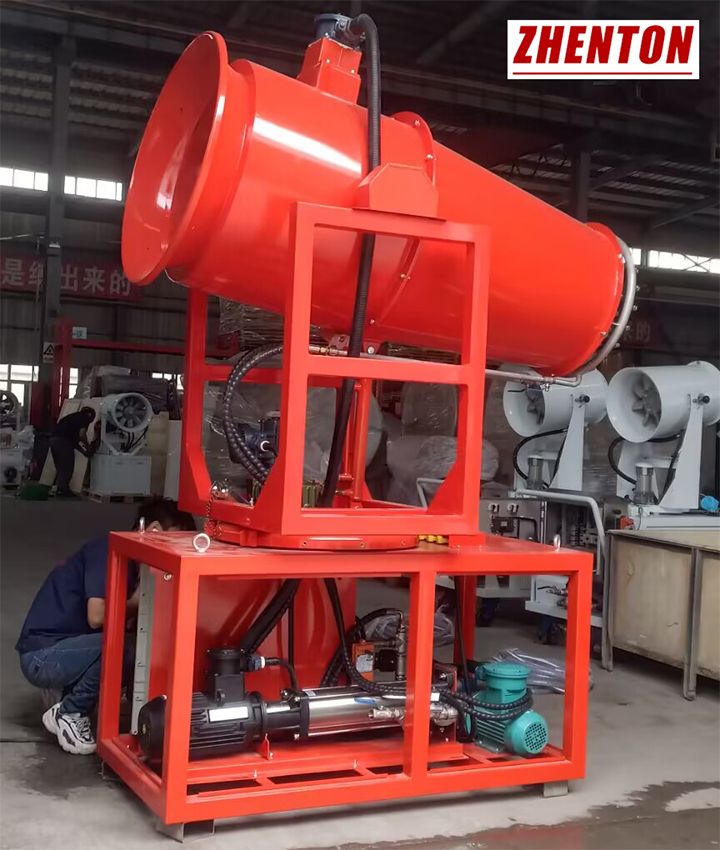What is Mist Cannon Dust
Suppression?
Mist Cannon Dust Suppression Involves the Use of a
Specialized Machine,Often Referred to as a Fog Cannon
Dust Suppression System,to Emit a Fine Mist of Water
Droplets.These Droplets Capture Airborne Dust Particles,
Causing Them to Settle More Quickly to the Ground.
The Technology is Effective Over Large Areas and is
Adjustable to Target Specific Dust Sources.
In Various Industrial Sectors Such as Construction,Mining,
and Demolition,Dust Control is a Critical Issue that Must
be Addressed to Ensure Safety,Compliance,and
Environmental Protection.One of the Most Efficient
Methods for Managing Dust is the Use of Mist Cannon
Dust Suppression Systems.These Systems Not Only
Improve Air Quality But Also Help in Maintaining a
Cleaner and Safer Work Environment.
Choosing the Right System
When Selecting a Fog Cannon Dust Suppression System,
Consider the Following Factors:
A,Coverage Area,Ensure the System Can Adequately Cover
the Required Area.
B,Mobility,Depending on Your Needs,Choose Between
Stationary or Mobile Units.
C,Water Source and Consumption,Assess the Availability
of Water and the System's Water Usage Efficiency.
D,Maintenance,Look for Systems With Low Maintenance
Requirements to Reduce Downtime and Operational Costs.

Benefits of Fog Cannon Dust Suppression Systems
1,Effective Dust Control,By Emitting a Fine Mist,These
Systems Can Cover Large Areas and Significantly Reduce
Airborne Dust.
2,Water Efficiency,Compared to Traditional Water Spraying
Methods,Mist Cannons Use Less Water,Making Them a
More Sustainable Option.
3,Versatility,Suitable for Various Environments Including
Open-Pit Mines,Construction Sites,and Material Handling
Areas.
4,Health and Safety,Reducing Airborne Dust Improves Air
Quality and Minimizes Health Risks for Workers and
Nearby Communities.










